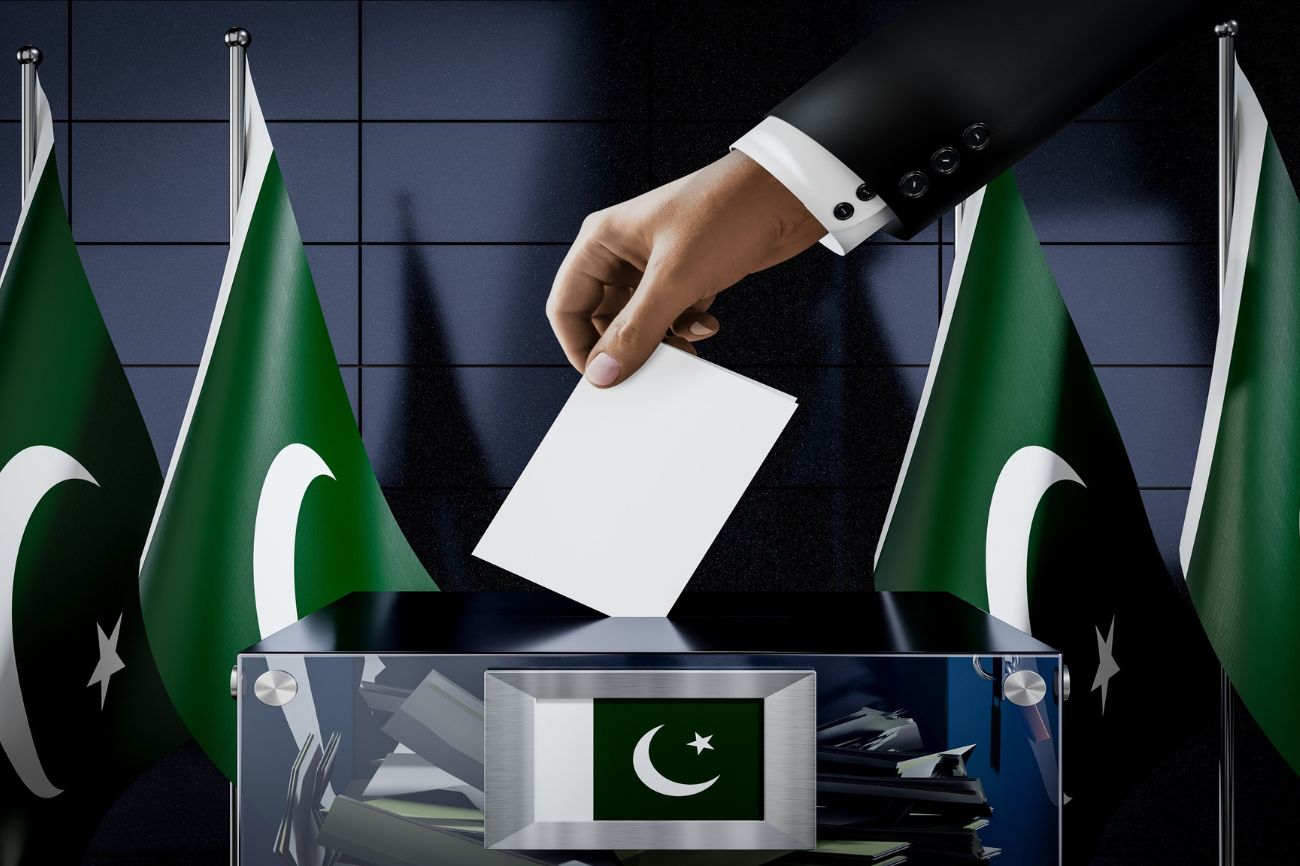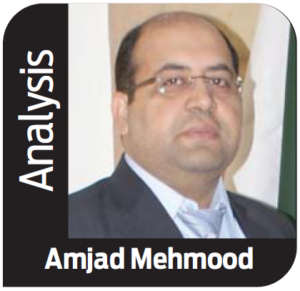
 Pakistani nation voted for their preferred political parties and candidates across the country in General Election 2024 on Thursday, February 8, 2024. Principally, the political party that secures majority seats of national and provincial assemblies is entitled to form federal and provincial governments for the next five years. After almost six months of chaotic influx and tons of doubts about elections in Pakistan, D-Day has passed. The nation was waiting for peace, socio-economic stability, and a prosperous future after the elections but the drama is yet not over. The director and producers were in dire need of changing the story’s script as the public had shown interest in an unwanted direction.
Pakistani nation voted for their preferred political parties and candidates across the country in General Election 2024 on Thursday, February 8, 2024. Principally, the political party that secures majority seats of national and provincial assemblies is entitled to form federal and provincial governments for the next five years. After almost six months of chaotic influx and tons of doubts about elections in Pakistan, D-Day has passed. The nation was waiting for peace, socio-economic stability, and a prosperous future after the elections but the drama is yet not over. The director and producers were in dire need of changing the story’s script as the public had shown interest in an unwanted direction.
Interim Government, Military establishment, Judiciary, and Election Commission of Pakistan were pivotal and allegedly controversial stakeholders with their minor to major roles in the arrangements of general elections. Free and fair elections are the beauty of democratic societies where people are free to elect public representatives of their choice. Amid the complaints about an equal level playing field for all political parties, the electoral process was completed oddly. The polling process was completed peacefully without any major provocation however; the declaration of results was an actual muddle contrary to pre-election claims of the Election Commission. The result declaration process continued up to the third day while winning and losing candidates were equally baffled.
The majority of political parties have defensively shown their reservations about election results since the majority of them got a share in national or provincial assemblies and won’t seem ready to lose the string of power. The ratio of shares was the major conflict point otherwise; all parties were familiar enough that nothing new happened in the general elections of 2024. The split mandate is gauged as an ideal situation for the military establishment in Pakistan which enables them to deal with political parties on desired terms. A couple of decades before this phenomenon was not part of open public debate but courtesy of social media and its proactive use by political parties especially Pakistan Tehreek-e-Insaf (PTI), now the public openly comments on the nexus of establishment and aide political parties.
The rules, regulations, and procedures for pre and post-election activities in the country are comprehensively penned by fixing the roles and responsibilities of all stakeholders. The constitution provides an opacity-free track while executing this mega activity. Regrettably, the implementation of rules and execution of responsibilities always remain questionable during elections in Pakistan. The ones who are primarily responsible for organizing free and fair elections are mostly found in a passive role during the elections while several other forces denoted as ‘alien’ allegedly seem proactive to manage the elections in a pre-designed manner. General elections priced about 54 billion rupees to the national exchequer which is quite a high price for an activity which always remains questionable and provides fuel to the losing candidates and parties to ignite the politics of agitation.
The mockery of constitution is a matter of no value for power elites in Pakistan and deliberate lacunas in the constitution assist them in playing with the system daringly. In the realm of governance, the constitution stands as the bedrock, outlining the principles and framework upon which a nation operates. However, amidst its sturdy provisions, lurk gaps and ambiguities—lacunas that often become breeding grounds for misuse, particularly by the political and power elites. These loopholes, rather than serving the public interest, are often exploited to consolidate power and advance personal or partisan agendas. Ambiguity serves as a shield, enabling the power gurus to interpret the law to their advantage, even if it contradicts the spirit of the constitution. Additionally, the discretion provided by constitutional gaps allows selective enforcement of laws which helps in targeting opponents or dissenters. Similarly, electoral laws and procedures in Pakistan contain certain loopholes which are exploited for electoral gain to ensure continued dominance and sidelining opposition voices. The constitution serves as a bulwark against tyranny and ensures the rule of law, its effectiveness hinges on the integrity of its implementation. The misuse of constitutional lacunas by the political elite not only undermines the foundations of democracy but also perpetuates a system of privilege and inequality.
Most oddly, before general elections in Pakistan, a political party always remains under state oppression. During general elections in 2018, the Pakistan Muslim League (Nawaz) was in similar circumstances as Pakistan Tehreek-e-Insaf (PTI) faced in the recently held general election in February 2024. The back-to-back decisions from the Election Commission and the Supreme Court of Pakistan against PTI about the party emblem endorsed public perception of using tactics to keep them away from triumph. The current chaotic socio-political situation in Pakistan is a result of a seamless depressing state of affairs.
PML-N set to drive federal and Punjab governments, Pakistan Peoples Party (PPP) being the happiest one has conquered the Sindh and Balochistan governments along with constitution positions including the President of Pakistan, Deputy Speakers slots at National and Punjab Assemblies, Governors in Balochistan and Khyber Pakhtunkhwa, PTI retained their solo power in Khyber Pakhtunkhwa, MQM (Pakistan) a self-surprised party with results going to grab share in federal government eyeing on desired ministries of IT and shipping along with slot of Governor Sindh. A few other parties like Istehkam-e-Pakistan (IPP), PML (Quaid-e-Azam), PML (Zia), and BalochistanAwami Party (BAP) are part of the government’s alliance to taste the lust of power.
Jamaat-e-Islami (JI), Awami National Party (ANP), Grand Democratic Alliance (GDA), Jameet-e-Ulama-Islam Fazal-ur-Rehman (JUI-F), PakhtunkhwaMilliAwami Party (PkMAP) and Tehreek-e-Labbaik Pakistan (TLP) are stunned with the results as they kept deprived from securing enough representation in national or provincial assemblies to become member of ruling alliance. JUI (F) is in the most traumatic situation for not being part of the federal or provincial governments. JUI (F) leadership seems furious to set the stage on fire with street protests and their anger is against ‘election managers’ rather than old aides in the PDM government.
The tragedy does not lie in the fact that the establishment selects a single party to lead the nation while the other political parties lament their lack of support from the establishment. Instead of the public’s approval, and monitoring the actions of political parties during the power regime, the roles of hero and villain kept shifting according to the degree of obedience before establishment.
This is high time to respect public opinion and let it decide the people of Pakistan whom they want to rule the country as more than seven decades are enough for experiences and playing with destiny of the nation. Or else, there is a dire need to stop the melodrama of democracy in Pakistan to save a few billion rupees on a futile effort of elections. As a way forward, strengthening accountability and transparency mechanisms is essential to safeguard democratic principles and promote equitable governance in Pakistan.






